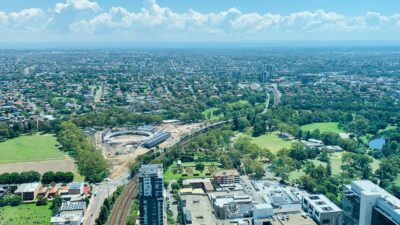Associate Professor Tooran Alizadeh is the co-convener of Smart Urbanism (Research) Lab at the University of Sydney, the lead investigator on the Infrastructure Governance Incubator funded by the Henry Halloran Trust, and the Associate Editor of Telematics and Informatics - an interdisciplinary high impact journal (IF: 6.182) on the social impacts of new technologies. She was a recipient of the prestigious Research Accelerator Fellowship (SOAR) at the University of Sydney (2019 and 2020). A/Prof Alizadeh has recently been awarded an ARC Future Fellowship to explore the complex socio-spatial implications of smart city development in India (2022-2026).
Her latest book, Global Trends of Smart Cities, offers an integrated assessment of the 135 cities that participated in the IBM’s Smarter Cities Challenge demonstrating the ways in which geography, size, governance, and local planning context – each individually and in combination with each other – influence smart city development around the globe. The book identifies the North-South divide as the most influential factor explaining how smart urbanism is framed worldwide; and argues that the future of smart city development depends on how ‘smart’ approaches the ongoing and increasing level of inequity and inequality within our cities but also at the transregional and transnational levels.
More broadly, A/Prof Alizadeh utilises cross-disciplinary knowledge and methodologies to gain new vital perspectives into the ever-growing complexities of cities in the age of advanced technological challenges and opportunities. She has investigated the socio-spatial patterns of telecommunication infrastructure deployment in Australia and beyond; if and how the advanced infrastructure is accounted for in the strategic plans for the future of our cities; and finally the extent to which smart city initiatives respond to the strategic challenges of each city and its citizens. Her work has resulted in over 80 refereed publications; and made meaningful contributions to the public discourse around the urban and equity implications of the National Broadband Network in Australia - evidenced by numerous prime time TV and radio interviews, and hundreds of quotations in the print media.




